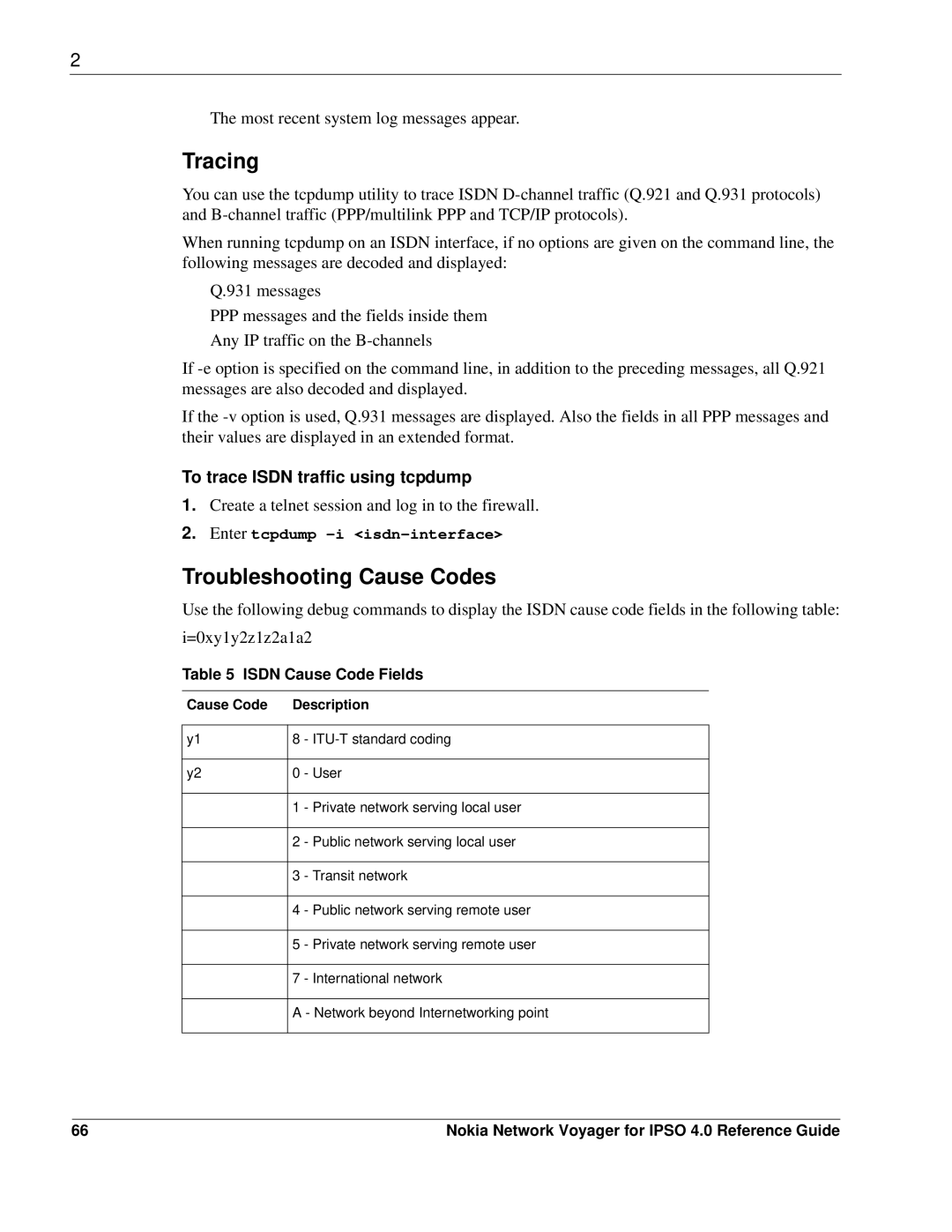
2
The most recent system log messages appear.
Tracing
You can use the tcpdump utility to trace ISDN
When running tcpdump on an ISDN interface, if no options are given on the command line, the following messages are decoded and displayed:
Q.931 messages
PPP messages and the fields inside them
Any IP traffic on the
If
If the
To trace ISDN traffic using tcpdump
1.Create a telnet session and log in to the firewall.
2.Enter tcpdump
Troubleshooting Cause Codes
Use the following debug commands to display the ISDN cause code fields in the following table: i=0xy1y2z1z2a1a2
Table 5 ISDN Cause Code Fields
Cause Code | Description | |
|
|
|
y1 | 8 | - |
|
|
|
y2 | 0 | - User |
|
|
|
| 1 | - Private network serving local user |
|
|
|
| 2 | - Public network serving local user |
|
|
|
| 3 | - Transit network |
|
|
|
| 4 | - Public network serving remote user |
|
|
|
| 5 | - Private network serving remote user |
|
|
|
| 7 | - International network |
A - Network beyond Internetworking point
66 | Nokia Network Voyager for IPSO 4.0 Reference Guide |
